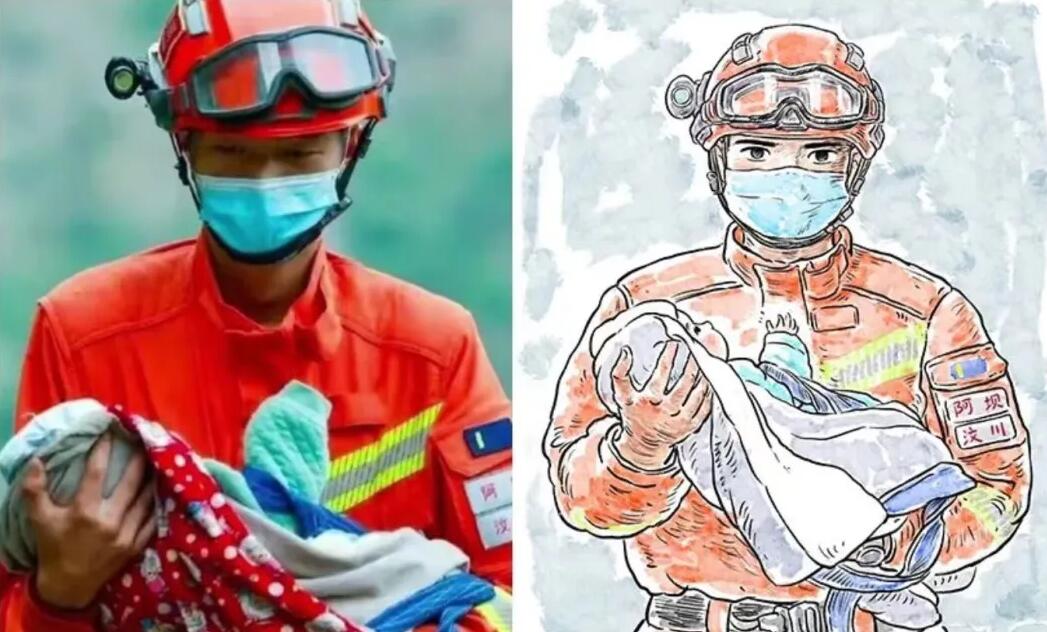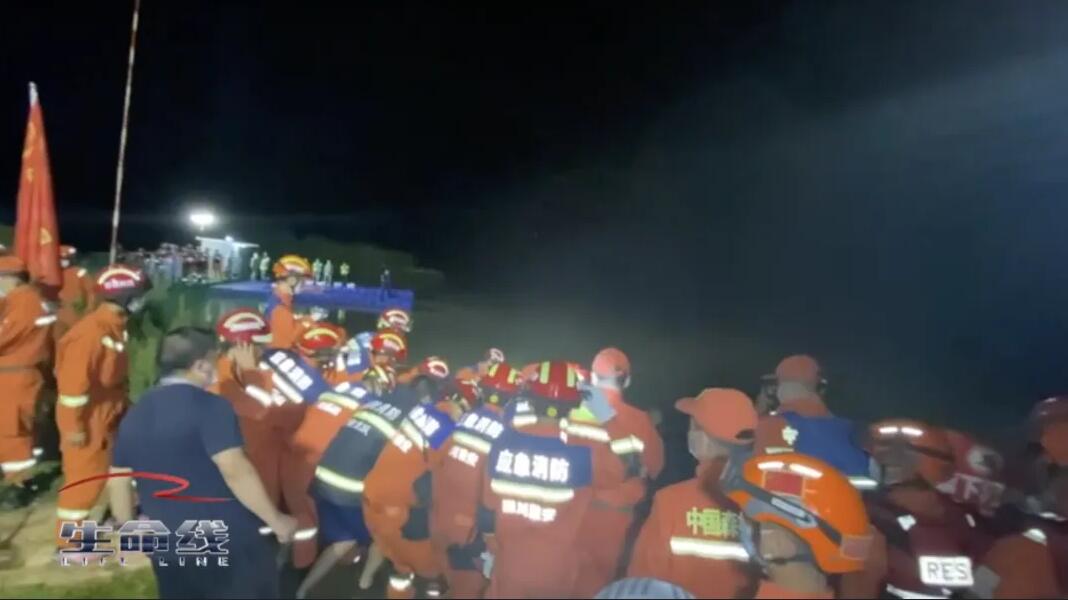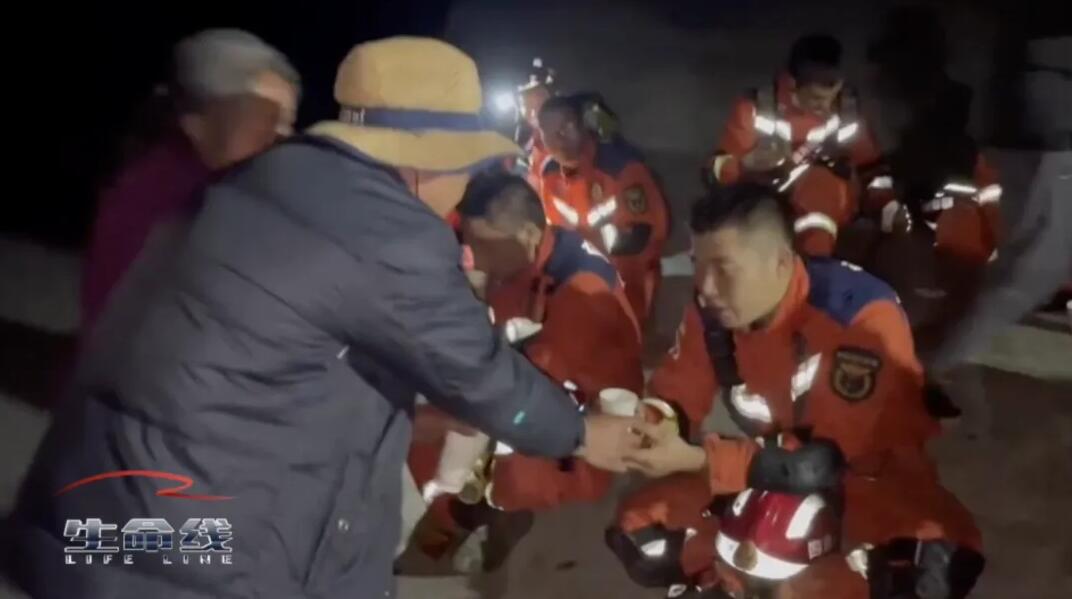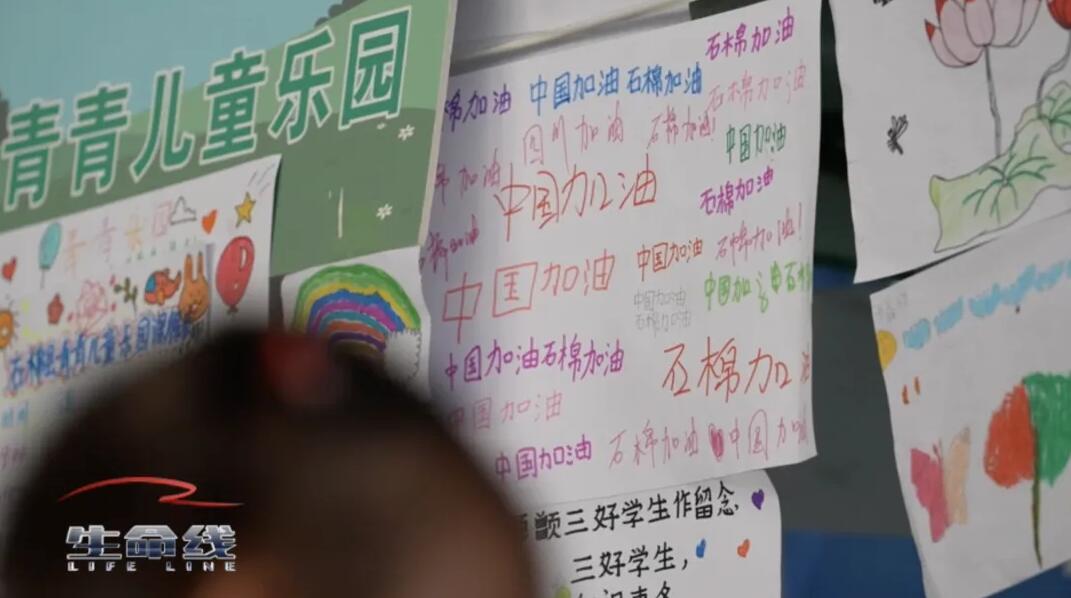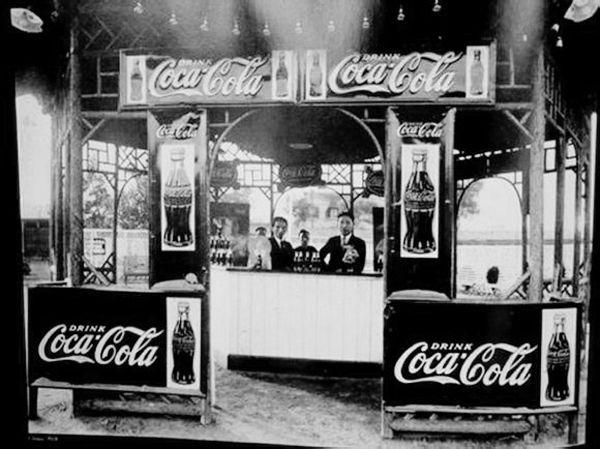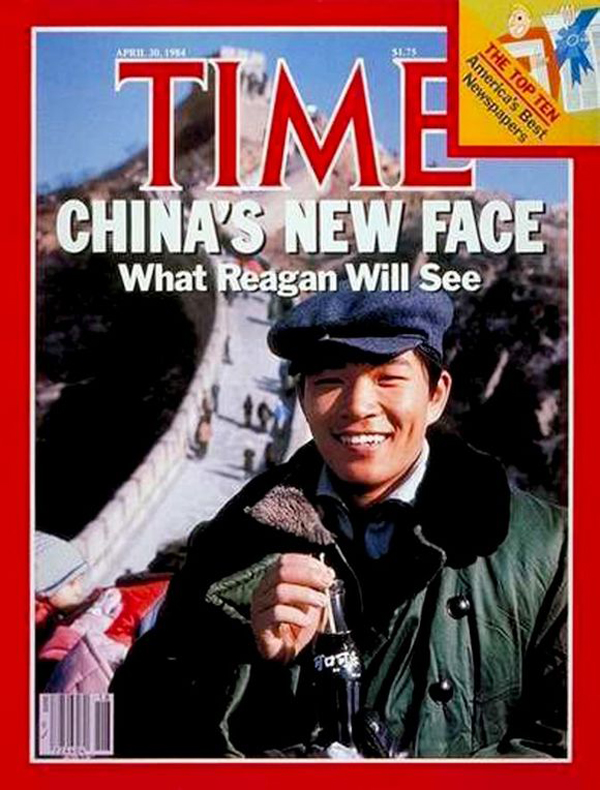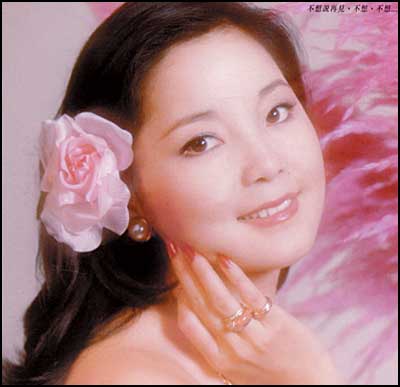On behalf of the Committee members, the concept of innovative development is hotly debated: cultivating craftsman spirit depends on mechanism
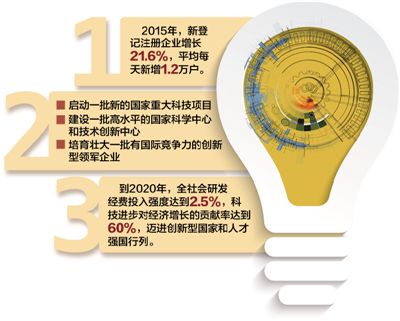
How to enhance the ability of independent innovation
Innovation is the first driving force to lead development, and it must be placed at the core of the overall development of the country, and the innovation-driven development strategy must be implemented in depth. Start a number of new major national science and technology projects, build a number of high-level national science centers and technological innovation centers, and cultivate and expand a number of innovative leading enterprises with international competitiveness.
— — Excerpt from the government work report
Representative of Chen Jun, President of Nanjing University
Colleges and universities should do more original research.
As an important force of scientific and technological innovation in China, there are still some outstanding problems in research universities, such as more scientific papers and less original achievements; More funds are invested in research and development, and less scientific research results are converted into applications; There are many patents applied, but few can directly promote industrial transformation and upgrading. Therefore, it is necessary to fundamentally solve the "two skins" problem that has long plagued China’s scientific research and economic and social development, and implement innovation.
It is suggested that colleges and universities should transform into problem-oriented original research, actively study overall and fundamental major theoretical issues, grasp the key elements of improving scientific and technological competitiveness and the urgent needs of countries and enterprises, strengthen major technological research and development in key areas of the country, and solve fundamental and strategic scientific and technological problems that restrict China’s economic and social development. At the same time, improve the market-oriented mechanism of scientific and technological innovation, eliminate the barriers between scientific and technological innovation achievements and the market, and provide institutional guarantee for scientific and technological innovation achievements to go to the market and enterprises and transform them into productive forces.
(Reporter Jiang Jie)
Representative of Dilinar Abdulla, Vice Chairman of China Federation of Literary and Art Circles
Cultural Innovation Leads Ethnic Blending
Like other ethnic groups, Uighurs are a nation with rich and splendid culture, and are often described as "singing when talking, dancing when walking". As a cultural space for Uighurs to practice their traditions, "Maixi Refu" is a part of Uygur cultural traditions and folk customs. It provides rich traditional knowledge and a continuous sense of cultural identity for members of this nation, and is considered as one of the most important cultural heritages of this nation.
Innovation is the best way to maintain tradition. As a Uighur dance artist trained by the Party, I want to describe, narrate and spread the unique cultural charm of Xinjiang with my dancing, and give it new vitality with my innovative ability. The musical "The Chinese Dream on the Silk Road Forever Maixi Refu", which I am the general director and starring, is such a sincere work. It reflects the multi-cultural and harmonious coexistence of the Chinese nation, and tells a story about life, love life, endless and handed down from generation to generation with singing and dancing. The play went deep into dozens of Huimin performances at the grassroots level, and the venue was full. Promoting the exchanges and exchanges among ethnic groups in Xinjiang requires the guidance of advanced culture, which must be a cultural creation full of innovative spirit.
(Reporter Wang Wei)
Representative of Liao Changyong, Vice President of Shanghai Conservatory of Music
Cultural innovation should respect tradition
Pen and ink should keep pace with the times, and cultural undertakings should reflect the spiritual outlook of contemporary society. Nowadays, the whole society emphasizes transformation and upgrading, innovation and development, which is not only a concept in the economic or scientific fields, but also an innovation and upgrading for artists. However, artistic innovation is based on respect for tradition, and we can’t just talk about one without talking about the other. Only when the two interact can the works shine. Some people can’t handle the relationship between them well, so their works lack connotation or vitality.
Therefore, artistic innovation is beneficial innovation on the basis of tradition, not disorderly innovation. The literary and art circles should calm down and look back at the long history of Chinese civilization. Chinese people should have cultural self-confidence, integrate the soul of China’s art into their works and spread it to the outside world. At the same time, cultural innovation should create works that "the people can understand". This requires that creation should not pursue skill excessively. Of course, art is not all romantic, and balancing emotions and thoughts is also the direction that cultural innovation needs to work hard.
(Reporter Cao Lingjuan)
Member Wu Weihua, Vice Chairman of the Central Committee of Jiu San Society
Straighten out the growth chain of scientific and technological talents
At present, China’s scientific and technological innovation ability is not strong enough, and its supporting ability for economic and social development has not been fully released. One of the reasons is that the innovation motivation of scientific and technological talents is insufficient and their innovation ability needs to be improved. The total number of scientific and technological talents in China ranks first in the world, but there are few masters with international influence.
It is suggested that we should pay attention to the construction of talent team, change the present situation of "talent without team" and "fragmentation" of researchers in China’s scientific research field, and especially integrate relatively scattered scientific research forces in some key areas to form collaborative innovation synergy. Straighten out the talent growth chain, break the shackles of "discussing heroes by seniority", purify the academic atmosphere, and let young and middle-aged scientific and technological personnel get the resources and opportunities for growth. Open up the "last mile" of the transformation of scientific and technological achievements, establish a platform for the docking of scientific and technological personnel, scientific research institutions and enterprises, and organize the two sides to meet the needs and coordinate innovation. Increase the R&D investment in basic research by the whole society, especially enterprises, and enhance China’s independent R&D capability.
(Reporter Chai Qiushi)
Representative of Bai Xiaoguang, Chairman of Inner Mongolia First Machinery Group
Optimize the allocation of innovative resources
It is an urgent requirement for the construction of national innovation system to deepen the scientific and technological interaction between "military mouth" and "civilian mouth" and build a new type of innovation chain. However, in China’s integration of defense and civilian technologies, only by taking measures as soon as possible to open up the technology diffusion channel of "military port" and "civilian port" can we realize the omni-directional, whole-process and all-factor optimal allocation of innovation resources.
It is suggested that integration of defense and civilian technologies legislation should be promoted to provide systematic legal protection for the in-depth development of integration of defense and civilian technologies. Improve the macro-management system in integration of defense and civilian technologies, establish the leading organization in integration of defense and civilian technologies at the national level, and coordinate the investment in science and technology to solve the problems of multi-head management, repeated investment and low efficiency of military and civilian investment in science and technology. Improve the incentive policies to promote integration of defense and civilian technologies’s development, including national investment policies and risk compensation policies, and set up integration of defense and civilian technologies Development Investment Fund to solve the driving force of integration of defense and civilian technologies’s development.
(Reporter Zhang Tengyang)
Representative of Wei Guoqiang, Secretary of Suqian Municipal Committee of Jiangsu Province
Overtaking in corners depends on innovation.
Some economically backward areas simply rely on expanding investment and production capacity, and the traditional development model is unsustainable. It is necessary to speed up the shift to the innovation-driven track to achieve overtaking in corners.
To make enterprises become the "leaders" of innovation, we must vigorously promote independent innovation. The government should guide and encourage enterprises to implement the "four changes". "Technology replacement" guides enterprises to increase investment in R&D, optimize product structure and cost structure, and seize the commanding heights of science and technology; "Machine substitution" guides enterprises to vigorously develop intelligent manufacturing and strive to improve the quality product rate and enterprise production efficiency; "Network-for-market" guides enterprises to innovate marketing models and improve market adaptability by means of setting up online marketing through third-party platforms; "Policy for wisdom", further improve supporting policies, and guide affiliated enterprises and scientific research institutes to establish strategic alliances for industrial technology innovation, technology transfer centers and other carriers to realize enterprise transformation and upgrading.
(Reporter Yao Xueqing)
Representative of Lu Guiqing, Chief Economist of china state construction engineering corporation
Cultivating craftsman spirit depends on mechanism
It is clearly stated in the government work report that it is necessary to cultivate the craftsman spirit of Excellence. However, from the current domestic reality, there are still cases where management talents are emphasized and operation talents are ignored. We should establish a long-term mechanism to let the "craftsman spirit" take root.
Cultivating "artisan spirit" is not only a powerful starting point to promote supply-side reform, but also an important means to crack the ceiling of migrant workers’ integration into cities, career choices and income levels. However, the domestic understanding of the role of artisans and the spirit of artisans is not enough, and the long-term mechanism for cultivating the spirit of artisans needs to be established and improved. It is suggested that the relevant departments should establish a scientific and reasonable career development channel for craftsmen, improve the technical evaluation and assessment system, emphasize the practicability and effectiveness of the evaluation of technical ability, improve the salary and welfare level of highly skilled talents, improve the living and living environment of migrant workers, ensure a good career development environment and living and living environment for "craftsmen" from the mechanism, and continuously improve the quality of life of "craftsmen".
(Reporter Yan Wei)
Member Li Huisen, Chairman of Lee Kum Kee Health Products Group
Cultivate entrepreneurs’ innovative spirit
The transformation and development of the country needs innovation, and entrepreneurs at the helm of enterprises need innovation spirit even more. At present, many private enterprises in China have entered the stage of intergenerational inheritance, and how the innovative spirit of the younger generation is related to the future and development of private enterprises. However, the survey found that although the younger generation of most family businesses in China are very familiar with new knowledge and technology, their innovative spirit is relatively weak, and they are prone to hold their own ideas.
It is suggested that we should attach great importance to how to cultivate and stimulate entrepreneurs’ innovative spirit and ability, and encourage entrepreneurs’ innovation through tax and financial support. At the same time, it is necessary to cultivate entrepreneurs’ innovative spirit and ability, carry out innovative training and practical exercise in a targeted manner, and guide them to maintain their innovative and enterprising entrepreneurial character, so that they can not only get rich and think about their sources, but also consciously fulfill their social responsibilities, and keep on exploring and developing.
(Reporter Su Chao)
How to break down institutional obstacles
Expand the autonomy of universities and research institutes and cut down red tape in scientific research management. We will implement policies and measures to support the transfer and transformation of scientific and technological achievements, improve the preferential tax policies and dividend incentives for equity options, and encourage scientific researchers to innovate.
— — Excerpt from the government work report
Member Gu Xingfa, Deputy Director of Institute of Remote Sensing and Digital Earth, Chinese Academy of Sciences
Scientific research evaluation should be quick success and instant benefit.
At present, the unscientific scientific research evaluation system has become a key link to hinder the improvement of China’s innovation ability, which is mainly manifested in the evaluation of quick success and instant benefit based on the number of published papers or the output of project achievements; The classification of scientific research fields and stages is general, ignoring the diversity of scientific research.
It is suggested to change the assessment method of "light weight" and "emphasizing form over substance", to overcome the problems of "small, scattered, miscellaneous and low-level repetition", to pay attention to the influence and practical value of scientific research results and to basic scientific research. At the same time, the evaluation system should pay attention to discovering the "potential" of young people, set up diversified standards for promotion and allowances, and create a relatively relaxed atmosphere for innovation. In addition, scientific research evaluation should adhere to the combination of quantitative and qualitative methods, and formulate an appropriate classification evaluation standard system according to the nature and field of scientific research. Among them, scientific innovation should build evaluation criteria on the basis of encouraging exploration and tolerating failure.
(Reporter Guo Mulong)
Representative He Ping, Secretary of Chongqing Wulong County Party Committee
Prepare for the era of mass tourism
The government work report puts forward "standardizing the order of the tourism market and welcoming the emerging era of mass tourism". Strengthening the basic role of consumption to stimulate economic growth through developing tourism is a development opportunity in many places. What should local governments do in the face of such opportunities?
First of all, we must change our concept. The current tourism industry is no longer a traditional scenic spot tourism model. The new tourism model, which focuses on individual travel and self-help travel, requires us to develop into global tourism. Since it is a global tourism, it is necessary to optimize the allocation of various economic and social resources in the whole region, including the overall planning of urban and rural areas, infrastructure, public services, etc., and have a brand-new pattern. For example, water conservancy construction should not only be practical but also meet aesthetic needs, and the roads should not only be smooth but also be deeply integrated with scenic spots. The most important point is that the order of the tourism market must be standardized. In the era of mass tourism, tourism shows a trend of normalization of consumption. At the grassroots level, comprehensive law enforcement must be highlighted to combat market chaos, provide all-round and humanized services for tourists, and strive to improve tourists’ satisfaction.
(Reporter Jiang Yunlong)
Representative of Bie Bixiong, Secretary of Jingmen Municipal Committee of Hubei Province
Let talents attract and stay.
Innovation-driven is essentially talent-driven. Without the gathering of a large number of researchers and the construction of innovative talent teams in a region, innovation-driven can only be nonsense. However, talents are scarce, especially in third-and fourth-tier cities with few institutions of higher learning and low level of economic development. Talents cannot be attracted, used badly and retained, so the stamina for innovation is insufficient.
In order to attract innovative talents, third-and fourth-tier cities should learn to "borrow talents" from important educational cities, and encourage and attract talents with return of interests and spirit. In the name of the government, we can sign a cooperation agreement with foreign universities, hire scientific and technological elites and government scientific and technological consultants to participate in local scientific and technological upgrading, so that local enterprises can establish a long-term cooperative relationship with universities in Industry-University-Research, and leverage the "outside brain" to promote transformation. In addition, talent introduction should be based on local advantageous industries and compete with big cities in a differentiated way. With talents, it is necessary to introduce assistance policies that are superior to those in big cities, so that talents can stay. For example, Jingmen issued a series of policies such as opinions on promoting mass entrepreneurship and innovation, set up an innovation and entrepreneurship service bureau, and set up an innovation and entrepreneurship guidance fund, which played a good role.
(Reporter Cheng Yuanzhou)
Member He Qiang, School of Finance, Central University of Finance and Economics
Scientifically supervise internet finance
In recent years, there have been constant innovations in the field of internet finance. However, there are also many problems in internet finance, such as inadequate government supervision and illegal fund-raising by some people. For example, the recent running events not only brought serious losses to the vast number of Internet finance users, but also brought serious negative impacts to the development of Internet finance.
It is suggested that on the one hand, the government should strengthen supervision over the risks in the field of internet finance, and focus on cracking down on those behaviors that use the cloak of internet finance to engage in Ponzi schemes and illegal fund-raising. At the same time, we should properly supervise the Internet finance field that really promotes inclusive finance and contributes to innovation and entrepreneurship, and give certain flexibility and innovation space to specific businesses to prevent the phenomenon of "chaos once released, and death once managed". To strengthen the construction of Internet financial credit system, it is suggested that the government should open government data to market-oriented credit reporting institutions such as Sesame Credit to form a joint force of Internet financial credit system and supervision system.
(Reporter Ouyang Jie)
Representative of Yang Xuegang, Chairman of Xuyang Group
Don’t let scientific research achievements become "Chen Guo"
At present, the utilization efficiency of China’s scientific and technological achievements is low, and a large number of scientific research achievements have become "Chen Guo", which cannot be transformed into applied technology and practical productivity in time.
In order to solve this problem, it is necessary to improve China’s Industry-University-Research integration mechanism, so as to organically link scientific and technological innovation with market demand. Before scientific research and development and new product development, we should do a good job in market research and make the products more targeted from the practical application. We can introduce end users at the beginning of R&D, take enterprise demand as the source of innovative projects, and adopt the project legal person mechanism to operate R&D projects, so as to integrate R&D, production and management. In terms of capital, it is necessary to increase the investment in business and application of R&D achievements, guide social capital investment, and promote the diversification of capital investment in the transformation of scientific and technological achievements. In addition, we should attach importance to the construction of talent team, cultivate a group of comprehensive talents who are proficient in the transformation of scientific and technological achievements, and make scientific and technological innovation play the greatest role.
(Reporter Shi Ziqiang)
Representative Xin Yan, Vice Chairman of Shanxi Provincial Committee of the Chinese Revolutionary Committee
Scientific and technological innovation lacks financial support.
The core factor of innovation-driven development is talent, and the key factor is capital. At present, the systematic policies to encourage talents to innovate and start businesses have been relatively perfect, while the policies and systems related to scientific and technological innovation in technology and finance are not yet complete. This has become a restrictive factor in the development of innovation and entrepreneurship in many areas, especially in underdeveloped areas such as the central and western regions and areas below third-and fourth-tier cities.
It is suggested to increase the reform of the management mechanism of state-owned banks in various countries, innovate financial products, and support innovation and entrepreneurship and industrial transformation and upgrading. Improve and introduce a systematic technology and finance policy system to promote and guide the construction of the national technology and finance system. Strengthen the layout of the construction of scientific and technological innovation financial system at the national level, give preferential policies and innovation and entrepreneurship guidance funds to underdeveloped areas such as the central and western regions, and ensure that in the tide of innovation and development, the central and western regions and underdeveloped areas will no longer fall behind.
(Reporter Zhao Bing)
Representative of Yang Yimin, Mayor of Fuzhou, Fujian
New mechanism stimulates new vitality
The government work report puts forward "strengthening the leading role of innovation and injecting strong impetus into development". For four consecutive years, the current government has made clear requirements for innovation in its government work report, which reflects the core position of innovation in the overall development of the country. However, we must also see that the soil for innovation in China is still not solid, many enterprises have not invested enough in innovation, and China’s original technology is still lacking, all of which restrict the further release of China’s transformation and upgrading potential.
It is suggested that technological innovation, product innovation, management innovation and business model innovation should be fully implemented to achieve higher quality economic growth; At the same time, we should continue to speed up the creation of a number of innovation bases and maker spaces, create a platform for mass creation, crowdsourcing, public support and crowdfunding, and build a new entrepreneurial innovation mechanism in which large, medium and small enterprises, universities, scientific research institutions and makers work together to further stimulate the innovation vitality of the whole society.
(Reporter Zhong Ziwei)
Member Ma Weihua, Chairman of the National Scientific and Technological Achievements Transformation Guidance Fund.
Make good use of government guidance funds
Government guidance fund is an important policy tool to increase the supply of venture capital and promote mass entrepreneurship and innovation. At present, the government-guided funds at all levels have achieved a spurt growth, but the problems have also become prominent. Such as the lack of continuity of funding sources, lack of overall planning and coordination of management, cumbersome approval procedures, and many investment restrictions.
It is suggested to strengthen the top-level design of government guidance funds, support the exploration of various operation modes of guidance funds, and adjust and clarify the functional areas of different government guidance funds in a timely manner in combination with the key areas and weak links in the national and local industrial layout; Overcome the current situation that the government guidance funds are scattered and the support objects overlap, promote the establishment of a multi-sectoral work coordination mechanism, especially give play to the role of the government guidance funds at the central level; Establish and improve the market-oriented operation mechanism of government-guided funds, simplify the examination and approval process and improve the examination and approval efficiency; Realize the marketization of the evaluation and incentive mechanism of the government-guided fund, and incorporate the government-guided fund into the evaluation and evaluation system of public finance. For the enterprises invested by the sub-funds established with shares listed, the state-owned shares held by the government-guided fund in proportion can be exempted from the obligation of transferring state-owned shares.
(Reporter Ouyang Jie)
Representative of Khalidan Abdul Kader of Xinjiang Oilfield Heavy Oil Development Company
Leading energy development with innovation
In recent two years, due to the comprehensive influence of the falling international oil price and the imbalance of domestic oil resources development and supply, the input cost of oil resources development in China, especially in Xinjiang, has gradually increased, and the output and sales profit have become lower and lower.
Innovation is inseparable from talent training. Front-line workers working in oil fields have rich practical experience and deep feelings about production and sales, and should be tapped and cultivated as the endogenous power source of enterprises. On the one hand, it is necessary to sum up the practical experience of grassroots business backbones and actively publicize innovative practices; On the other hand, it is necessary to strengthen the business exchange of innovative talents among energy enterprises in various provinces and cities in China, so that innovation will become the guiding concept of the energy industry during the 13 th Five-Year Plan period.
(Reporter Yang Yuanfan)
How to form new kinetic energy for development
Focus on implementing the innovation-driven development strategy, promote the deep integration of science and technology and economy, and improve the overall quality and competitiveness of the real economy … … Strengthening the main position of enterprise innovation … … Give full play to the multiplier effect of mass entrepreneurship, innovation and "internet plus".
— — Excerpt from the government work report
Member Xia Deren, Chairman of Liaoning Provincial Political Consultative Conference
Deep integration of industry and finance
At present, the problem of insufficient innovation ability and declining competitiveness of industrial enterprises has emerged in China. One of the important reasons lies in the lack of industrial capital. The two-line management of industrial departments and financial departments also makes it difficult for some enterprises to raise funds, which restricts their innovation and development.
In order to release the innovation ability of enterprises, it is suggested to implement financial policies conducive to the development of the real economy and promote the integration of industrial capital and financial capital. The state can integrate a number of strategic entity enterprises and financial enterprises through mutual shareholding, such as encouraging some equipment manufacturing enterprises to hold shares in some financial enterprises. At the same time, the secondary distribution of the current high income of financial institutions can allow financial institutions to take out part of their profits to discount the loans of equipment manufacturing enterprises.
(Reporter Zhang Tengyang)
Representative of Wang Anpang, Secretary of Shanxi Shuozhou Municipal Party Committee
Innovation changes the dominance of one coal.
Shuozhou’s industrial structure of "one coal dominates the whole city" has solidified the economic form to a certain extent and has become the main shortcoming that restricts the city’s economic development. Mainly manifested in the lack of diversified support for economic development, insufficient vitality for innovation and entrepreneurship, and more debts for social undertakings. Leading and driving development through innovation has become an urgent requirement for this resource-based city to get out of the predicament.
Guided by the concept of innovation, we must put innovation at the core of the overall development, constantly promote the innovation of ideas, mechanisms and methods, and stimulate the innovation and creative potential of the whole society. Accelerate scientific and technological innovation, and promote new formats with scientific and technological innovation; Promote industrial innovation and form a development pattern of "new technologies and new products are constantly emerging, and new formats and new industries are competing for generate"; Accelerate enterprise innovation, improve policies, mechanisms and measures to stimulate enterprise creativity; Accelerate opening-up and innovation, promote product production capacity to go out, and take the initiative to undertake industrial transfer.
(Reporter Liu Xinyu)
Member Zhu Gongshan, Chairman of GCL Group
Green energy should enjoy the green channel.
Under the background of China’s economic transformation and upgrading, renewable energy, which should be given priority to development, has been "backward" or even "sidelined" in some places. There are two reasons for this phenomenon: one is that there are no specific methods to operate, and the other is the lack of effective punishment measures.
It is suggested that the state should establish two mechanisms of "green electricity certificate" and "green electricity price" on the basis of strengthening the full guarantee acquisition of renewable energy. At the same time, the state should make it clear that the power grid should bear the main responsibility of fully guaranteeing the acquisition of renewable energy, and take on the responsibilities of giving priority to scheduling renewable energy, counting and sharing the abandoned power generation of renewable energy, fully tapping the peak shaving potential of the system, and strengthening the construction of transmission channels. In addition, the state can allow and encourage users who are willing to pay more for clean electricity to choose to buy renewable energy electricity voluntarily, and through the formulation of corresponding systems, ensure that the extra fees paid by users are really used for the development of renewable energy.
(Reporter Hao Yingcan)
Representative of Lv Huigan, Assistant Engineer of Jingyuan Coal and Electricity Company in Gansu Province
Innovation drives coal enterprises to upgrade.
Based on the analysis of the occurrence characteristics of energy resources and the development situation of new energy and renewable energy in China, it is difficult to change the status of coal as the main energy source in China for a long time to come. However, the problems of extensive coal growth mode, insufficient safety guarantee ability, low efficiency and serious pollution are becoming more and more prominent. Promoting the structural reform of coal supply side, promoting the clean and efficient development and utilization of coal, and promoting the transformation and upgrading of coal production are the inevitable choices to improve the scientific level of coal industry development, build ecological civilization and safeguard national energy security.
It is suggested to formulate relevant fiscal and taxation preferential policies, encourage enterprises to eliminate backward, high-energy-consuming and high-pollution production processes, intensify key technical research and achievements transformation in clean and efficient development and utilization of coal, popularize and apply new technologies, new processes and new products, effectively control pollutant emissions and improve coal development and utilization.
(Reporter Cao Shulin Ma Jian)
Representative Chen Wei, Director of Institute of Bioengineering, Academy of Military Medical Sciences
Cosmetic safety evaluation should be upgraded.
Because animal tests are still being used for safety evaluation, Chinese cosmetics are cold in the international market. We should accelerate the research on animal substitution of cosmetics in China. With the establishment of a unified chemical management system in Europe and America, and the collection of complete raw material data, the method based on safety risk assessment is gradually established. China is the second largest cosmetics market in the world after the United States. However, due to the lack of technical support, safety evaluation based on animal tests is still common, which is contrary to the consensus of the international community.
It is suggested that the construction of technical support institutions for cosmetics should be accelerated, and special institutions should be set up to promote the research and verification system of alternative toxicology methods for cosmetics. At the same time, the research and application of animal substitution test methods for cosmetics are included in the national key scientific and technological projects. Organize and solve the problems of accessibility of test materials in China, and promote the application of alternative test methods in cosmetic safety evaluation.
(Reporter Ni Guanghui)
Member Cheng Ping, Vice Chairman of Guangdong Provincial Committee of Chinese Revolutionary Committee
Scientific and technological innovation helps agricultural development
At present, there are still some problems in the innovation and development of agricultural science and technology in China, and there is still a big gap between the major basic agricultural theories, frontier core technologies and the application and popularization of agricultural high technology and the world advanced level. Lack of effective integration of agricultural scientific research resources; The dominant position of enterprises in agricultural science and technology innovation has not yet been formed.
It is suggested that the construction of modern agricultural industry science and technology innovation center should be accelerated, and agriculture-related high-tech innovation bases should be established in places where innovative resources are concentrated, so as to make major breakthroughs in biological breeding, agricultural machinery and equipment, intelligent agriculture and other fields. Formulate preferential policies to promote the development of agricultural high-tech industrialization, including increasing policy financial support and encouraging the exploration and development of experiments on the use of rural construction land for agricultural high-tech projects.
(Reporter Jon Chu)
